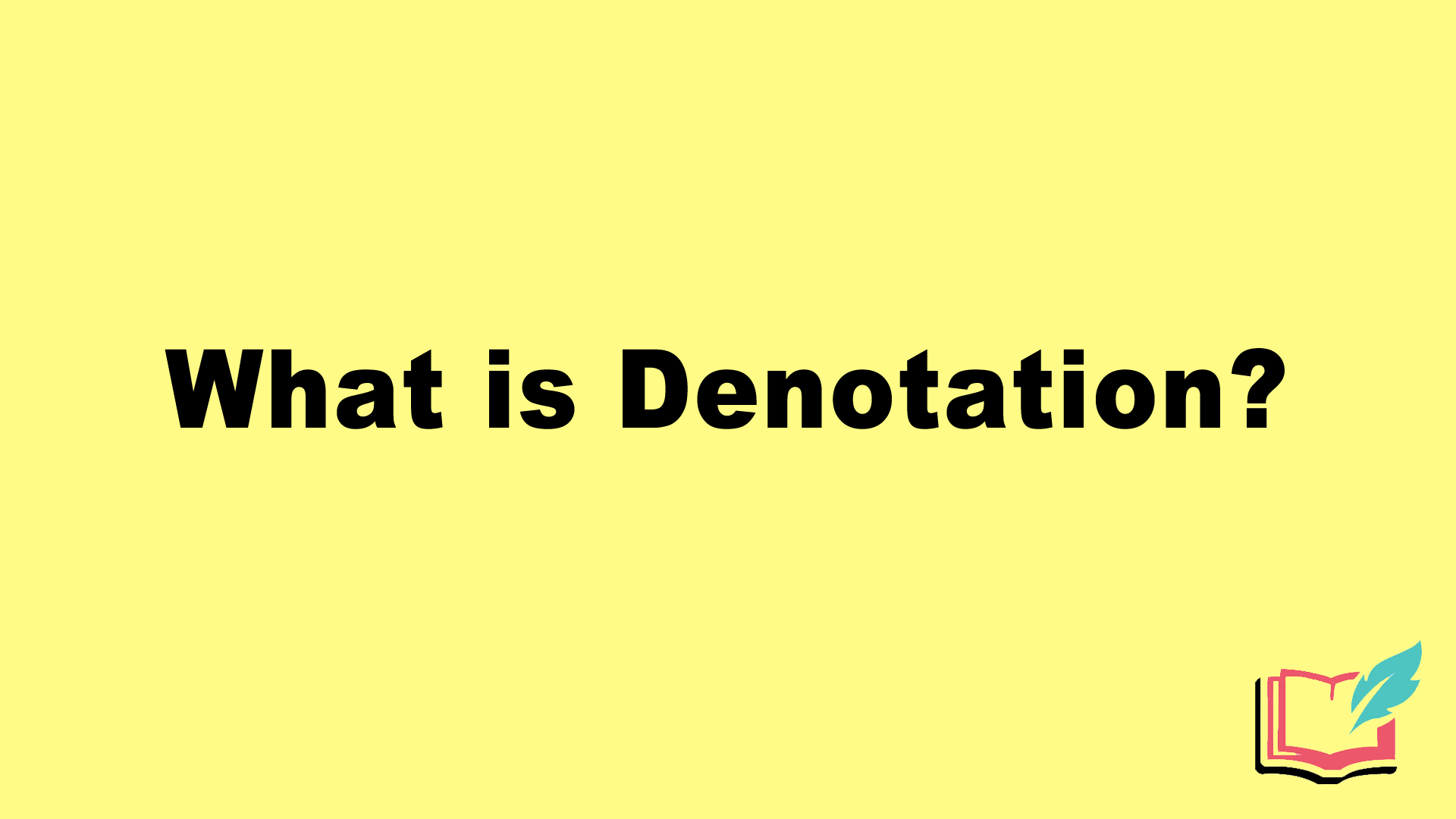
Denotation is the literal meaning of a word. This can be examined in contrast to a word’s connotation which is its implied meaning. A word’s denotation is devoid of elements such as emotion or hidden meaning.
What is Denotation?
Denotation is the most literal definition of a word. Many words will have the same denotation even if they tend to be used in different ways. For example, the words “chef” and “cook” have the same dictionary definition but tend to conjure up different personal meanings for people.
Words can also have vastly different implied meaning based on their contexts, but ultimately the denotation will be the same. Take the following as an example:
“The sky is blue.”
“Mike seems to be rather blue today.”
Although the implied meaning of the word “blue” is vastly different in the above sentences, the first statement refers to the color blue and the second statement refers to feeling sad. Regardless, the denotation of both words would be the dictionary definition along the lines of “a primary color made up of a mixture of green and violet.”
Difference Between Denotation and Connotation
Denotation vs. Connotation: Denotations are objective meanings of a word which do not change with context. For example, a car is always defined the same way, regardless of whether it is a car on Earth or a car in outer space. However, in the mind of the reader, the car probably functions differently depending on where it’s being used.
Connotations, however, are the implied meaning of a word depending on its context.
In order understand the difference, consider the denotation vs. connotation of the following words:
Home vs. house
- Denotation – a place where people live
- Connotation – the word “home” tends to have connotations implying comfort, warmth, a cultivated space for living. “House” has more of a connotation of a structure in which someone lives and is much less connected to a feeling.
Doctor vs. medic
- Denotation – a medical healer by profession
- Connotation – the word “doctor” has a very clinical connotation. Being a doctor comes across as simply describing a profession. The word “medic” can be taken as more of a way of life, as in the person has dedicated their life to the healing sciences.
The Purpose of Denotation
While the denotations of certain words are probably easily understood by most readers, they tend to have restricted meanings. This is why it is actually useful for writers to use creative thought to venture away from the blandness of denotative meanings and to invite readers to use inferences that bring certain phrases or words fresh or enhanced meaning. Readers typically enjoy being prompted to use their creative side to this extent as well.
You can also think of denotation as an anchor for figurative exploration for certain ideas. For example, concepts such as personification, simile, and metaphor rely on the reader’s understanding of the denotation of a word in order to bring deeper meaning to the concept.
In other types of writing, using words true to their denotation can enhance the quality of the writing by making it as clear, direct, and precise as possible so that readers cannot misunderstand the point. This would be found in styles of writing such as journalistic reporting or academic research.
Denotation Examples in Literature
In philosophical writing, for example, denotation is common as the philosophical writers can only get their ideas across when they are direct and clear. Consider Nicomachean Ethics by Aristotle, in which the idea of contemplation is examined. There is not much hidden meaning in the following words:
- Contemplation is both the highest form of activity (since the intellect is the highest thing in us, and the objects that it apprehends are the highest things that can be known), and also it is the most continuous, because we are more capable of continuous contemplation than we are of any practical activity.
In William Wordsworth’s poem “I Wandered Lonely as a Cloud,” a lovely figurative scene is created through the use of imagery. Because the language is so lyrical and paints such a beautiful mental picture, it’s surprising to realize that the meaning of the words in the following stanza are actually all quite literal, which serves to enhance the visual imagery:
When all at once I saw a crowd,
A host, of golden daffodils;
Beside the lake, beneath the trees,
Fluttering and dancing in the breeze.
Finally, in Herman Melville’s Moby Dick, a novel full of allegory and figurative language, the description of the whale is that it is white. This description has many levels of implied meaning but the meaning of the word “white” can be taken by its denotative meaning as well, as the whale is actually white in color.
- Aside from those more obvious considerations touching Moby Dick… It was the whiteness of the whale that above all things appalled me.
Recap: What is Denotation in Literature?
Denotation is the literal dictionary definition of a word, without any emotional and/or implied meaning hidden beyond the literal. Denotation is best understood in contrast to its opposite, connotation, which is the implied meaning of a word based on context. Writers that stick to literal, denotative meanings in their writing are likely trying to convey a very clear point whereas writers who rely more on connotation are going for more figurative effects.
